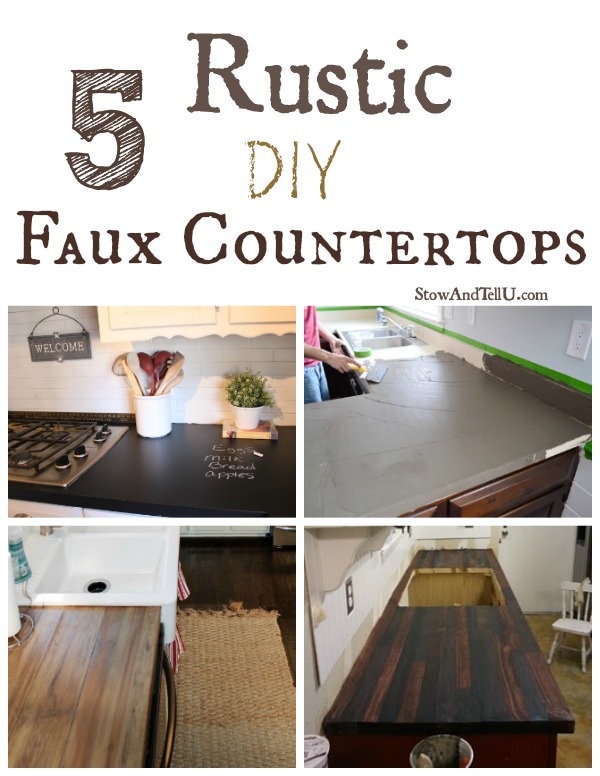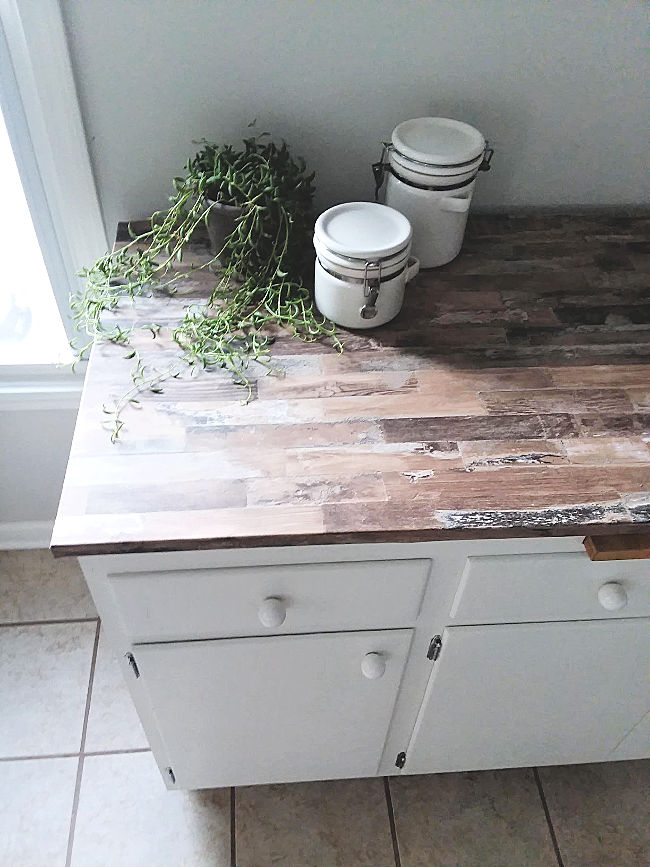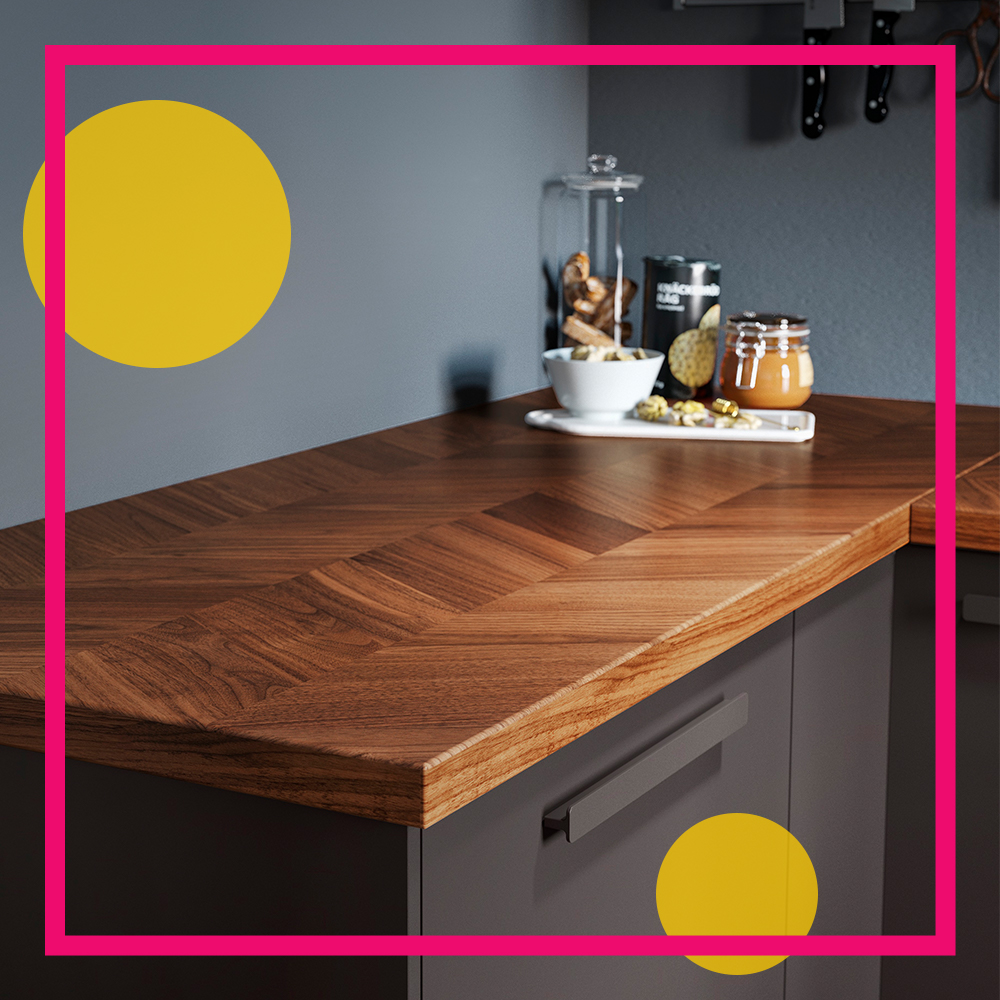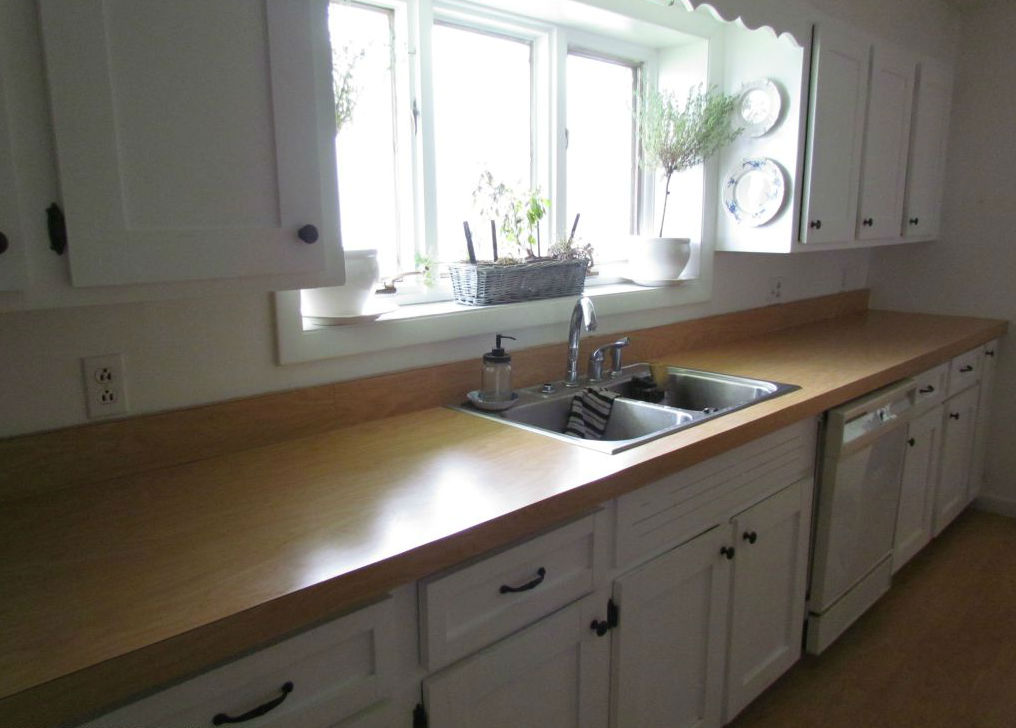The Charms of Faux Wood Kitchen Countertops
Faux wood kitchen countertops have become a popular choice among homeowners and designers alike, thanks to their aesthetic appeal and practical advantages. Unlike traditional wooden countertops, faux wood offers the look and feel of natural wood while being more durable, cost-effective, and easier to maintain. This article will discuss the benefits of faux wood countertops, the various types available, how to properly maintain them, and common mistakes to avoid when choosing and installing these countertops.
Benefits of Faux Wood Countertops
Faux wood countertops offer several compelling advantages over their natural counterparts. One of the primary benefits is their resistance to water damage. Traditional wooden countertops can swell, warp, and crack when exposed to moisture, but faux wood materials, such as laminate and solid surfaces, are designed to withstand water and humidity. This makes them an ideal choice for kitchens, where spills and splashes are common.
Another significant benefit of faux wood countertops is their durability. Natural wood can scratch, dent, and show signs of wear over time, whereas faux wood materials are engineered to be more resilient. They resist scratches, stains, and heat better than many natural woods, ensuring that your countertops maintain their beauty for years to come. This durability also translates to less frequent need for repairs or replacements, saving homeowners time and money in the long run.
Cost is another factor where faux wood countertops shine. Genuine wood countertops can be expensive, particularly if you opt for high-end species like walnut or mahogany. Faux wood options, however, are typically much more affordable. Materials like laminate and engineered wood provide the aesthetic appeal of natural wood at a fraction of the cost, making them accessible to a wider range of budgets.
Finally, faux wood countertops offer a wide variety of design options. Whether you prefer the rustic charm of reclaimed wood or the sleek, modern look of dark-stained oak, there is a faux wood option to suit your taste. Advances in manufacturing techniques mean that these materials can mimic the grain patterns, textures, and colors of virtually any type of wood, providing endless possibilities for customization.

Types of Faux Wood Countertops
There are several types of faux wood countertops available, each with its unique characteristics and benefits. One of the most common types is laminate. Laminate countertops consist of a plastic-coated surface attached to a particleboard or MDF (medium-density fiberboard) core. They are known for their affordability, ease of installation, and wide range of styles. Laminate can mimic the appearance of various wood grains and finishes, making it a versatile choice for many kitchens.
Another popular option is engineered wood. Unlike solid wood, engineered wood is made from layers of wood veneer glued together under high pressure. This construction method gives engineered wood greater stability and resistance to warping compared to solid wood. Engineered wood countertops can be finished with a veneer that replicates the look of high-end wood species, offering a premium appearance without the associated cost.
Solid surface countertops, such as those made from Corian or other acrylic-based materials, also offer faux wood options. These countertops are non-porous, making them highly resistant to stains and bacteria. Solid surface materials can be thermoformed into various shapes, providing seamless integration with sinks and backsplashes. The ability to create custom designs and integrate different elements makes solid surface countertops a popular choice for modern kitchens.
Finally, there are faux wood countertops made from recycled materials. These eco-friendly options often use reclaimed wood fibers or other sustainable materials to create a composite surface that mimics the look of natural wood. In addition to being environmentally friendly, recycled faux wood countertops can be highly durable and aesthetically pleasing, combining sustainability with practicality.

Maintenance and Care for Faux Wood Countertops
Proper maintenance and care are essential to keep your faux wood countertops looking their best. While these materials are generally more durable and easier to care for than natural wood, they still require regular upkeep to maintain their appearance and longevity.
Cleaning faux wood countertops is straightforward. For daily cleaning, use a mild dish soap and warm water with a soft cloth or sponge. Avoid using abrasive cleaners or scrubbers, as they can scratch the surface. For tougher stains, a mixture of baking soda and water can be effective. Apply the paste to the stain, let it sit for a few minutes, then gently scrub with a soft brush.
Preventative measures can also help prolong the life of your faux wood countertops. Always use cutting boards when preparing food to avoid scratching the surface. Similarly, use trivets or hot pads under hot pots and pans to prevent heat damage. While faux wood materials are more heat-resistant than natural wood, prolonged exposure to high temperatures can still cause damage.
Sealing may be necessary for some types of faux wood countertops, particularly those with wood veneer surfaces. A high-quality sealant can protect the surface from moisture and stains, extending the life of the countertop. Follow the manufacturer’s recommendations for sealing, and reapply as needed to maintain optimal protection.
Finally, be mindful of the types of cleaners and chemicals you use on your countertops. Avoid harsh chemicals like bleach or ammonia, as they can damage the surface. Instead, opt for gentle, non-toxic cleaners specifically designed for use on kitchen surfaces. Regular cleaning and maintenance will ensure that your faux wood countertops remain beautiful and functional for years to come.

Common Mistakes to Avoid
Choosing the Wrong Material: One of the biggest mistakes homeowners make is selecting the wrong type of faux wood material for their needs. Each type of faux wood countertop, whether laminate, engineered wood, solid surface, or recycled materials, has its unique properties. Failing to research and understand these differences can lead to dissatisfaction with the final product. For example, laminate may not be suitable for a high-traffic kitchen where durability is paramount, while engineered wood might be better suited for those looking for a balance between cost and aesthetic appeal.
Poor Installation Practices: Another frequent error is improper installation. Whether you decide to install the countertops yourself or hire a professional, ensuring correct installation is crucial. Misaligned seams, uneven surfaces, and poorly sealed edges can all result from shoddy installation practices. These issues not only affect the appearance of your countertops but can also lead to functional problems, such as moisture penetration and subsequent damage. Investing in professional installation or meticulously following installation guidelines can prevent these problems.
Ignoring Maintenance Requirements: Faux wood countertops require regular maintenance to keep them looking their best and to prolong their lifespan. Neglecting routine care, such as sealing, cleaning, and using protective measures like cutting boards and trivets, can lead to scratches, stains, and other damage. It’s essential to understand the specific maintenance needs of your chosen faux wood material and adhere to a consistent care routine. This will ensure that your countertops remain beautiful and functional for years to come.
Not Considering Kitchen Design: Aesthetic cohesion is key to a well-designed kitchen. Faux wood countertops can be a standout feature, but they need to complement the rest of your kitchen decor. Failing to coordinate with existing elements like cabinetry, flooring, and backsplashes can create a disjointed look. Taking the time to plan and visualize how your new countertops will fit within your kitchen’s overall design will help achieve a harmonious and appealing space.

Are faux wood countertops durable?
Faux wood countertops are generally more durable than natural wood. Materials like laminate, engineered wood, and solid surfaces are designed to resist scratches, stains, and moisture. However, durability can vary depending on the specific type of faux wood material and how well it is maintained. Regular cleaning, using cutting boards, and avoiding exposure to extreme heat can help extend the life of your faux wood countertops.
How do I clean and maintain faux wood countertops?
Cleaning faux wood countertops is simple. Use a mild dish soap and warm water with a soft cloth for daily cleaning. Avoid abrasive cleaners and scrubbers that can scratch the surface. For tougher stains, a paste of baking soda and water can be effective. Preventative care includes using cutting boards, trivets for hot pots, and sealing the surface if recommended by the manufacturer. Regular maintenance will keep your countertops looking their best.
Can faux wood countertops be repaired if damaged?
Yes, faux wood countertops can often be repaired if they become damaged. Small scratches and nicks can be sanded and refinished, particularly on solid surface and engineered wood countertops. For laminate countertops, repair kits are available that can fix minor damages. However, significant damage might require professional repair or, in some cases, replacement of the affected section.
How do faux wood countertops compare to natural wood in terms of cost?
Faux wood countertops are generally more cost-effective than natural wood. Materials like laminate and engineered wood offer the look of high-end wood species at a fraction of the cost. This makes them an attractive option for homeowners looking to achieve a wood-like aesthetic without the high price tag. Additionally, the durability and lower maintenance costs of faux wood can result in long-term savings.
Are faux wood countertops environmentally friendly?
Some types of faux wood countertops are more environmentally friendly than others. Recycled materials, in particular, offer a sustainable option by utilizing reclaimed wood fibers or other eco-friendly materials. Engineered wood can also be considered more sustainable than solid wood, as it makes more efficient use of timber resources. When choosing faux wood countertops, look for products that are certified for environmental sustainability to ensure you are making an eco-conscious choice.
How to Make Laminate Countertops Look Like Wood For Less Than
How to Make Laminate Countertops Look Like Wood For Less Than
Remodelaholic How to Create Faux Reclaimed Wood Countertops

Fake wood / laminate countertops – GUH! One of my least favorite

Related articles:

